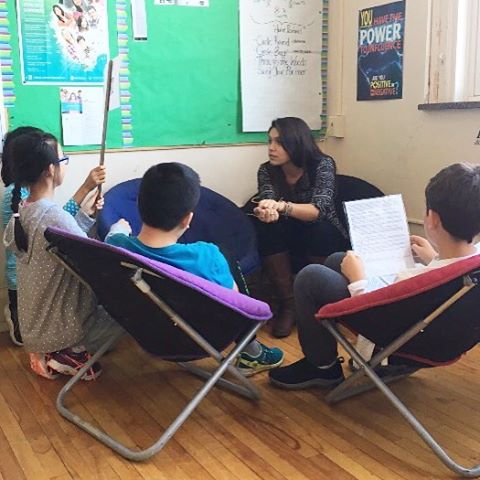
This fall, seven undergraduate facilitators, studying Peace and Conflict Studies and Global Studies at the University of Waterloo and Wilfrid Laurier University respectively,orchestrated workshops in ten grade six classrooms in six elementary schools within the Waterloo Region and Waterloo Catholic District School Boards.
Designed to teach one unit of Social Studies in the Ontario Grade Six Social Studies Curriculum, the fall workshop series instructed students on the topics of Canadian identity and heritage through a social justice lens. In addition to lessons on Canadian history, workshops included many interactive games to aid in the development of conflict resolution skills. By the end of the workshop series, students felt that TREE gave them the tools they need to solve problems. Students learned that communication is a very important skill in conflict resolution. One student explained that "miscommunication is what causes conflicts," and another student wrote that "you need to understand other people's needs, and how your own actions can affect conflict."
TREE strives to create connection with both students and teachers. After the workshops came to an end, teachers stated that the program improved their classroom's critical thinking skills, empathy, and inclusivity. Additionally, students felt that they had built a strong relationship with their TREE facilitators, and felt that their voices were heard throughout the program. Perri Termine, a TREE facilitator, agrees. "The students were in fact my teachers. Thanks to TREE and this remarkable opportunity, I gained a heightened level of perspective regarding the power of education and was able to connect with students directly and personally. This experience has also allowed me to develop the confidence, communication and interpersonal skills to comfortably foster peace-literacy inside and outside of the classroom."
The winter workshop series will begin in January. Educators can find more information about hosting TREE's classroom workshops online.